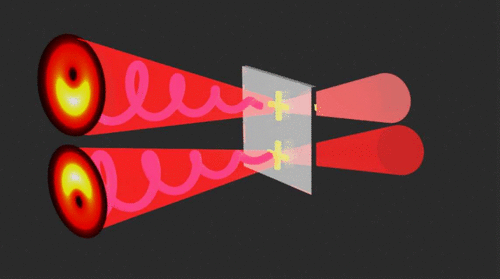- Bonder & Flip Chip
- Atmospheric Plasma Cleaner
- Vacuum Plasma Cleaner
- Spin Rinse Dryer
- Dispensing & Micro/Nano Printing System
- Lithography Process Systems
- Diffusion and LPCVD Furnaces
- Rapid Thermal Processing & Annealing
- Vacuum Soldering Systems
- Parylene Coating System
- Deposition System
- Hollow Cathode Plasma Source
- Plasma Etching System
- Sintering Presses
- Wet Process & Plating Tool
- Vacuum Chamber
- Electron Beam & Photo Resist
- Deposition Materials
The Impact of Nanobiotechnology on Modern Healthcare

Introduction:
Nanobiotechnology is revolutionizing the healthcare sector. By merging the principles of nanotechnology with biology, scientists are developing innovative solutions to some of the most challenging medical problems. But what exactly is nanobiotechnology, and why is it so important?
What is Nanobiotechnology?
Nanobiotechnology is an interdisciplinary field that involves the use of nanoscale materials (typically less than 100 nanometres) in biological systems. These materials have unique properties that can be harnessed for various applications in medicine, agriculture, and environmental science.
Applications in Healthcare
- Drug Delivery: Nanoparticles can be engineered to deliver drugs directly to specific cells in the body, improving the effectiveness of treatments while minimizing side effects. This targeted drug delivery is especially promising in cancer therapy.
- Diagnostics: Nanosensors can detect diseases at a molecular level, often before symptoms appear. These sensors offer high sensitivity and specificity, enabling early diagnosis and more effective treatment plans.
- Regenerative Medicine: Nanomaterials, such as nanofibers and nanoparticles, are used to promote cell growth and tissue regeneration. This application is crucial in developing advanced treatments for injuries and degenerative diseases.
Challenges and Ethical Considerations
While the potential of nanobiotechnology is vast, there are challenges to address. Issues related to toxicity, environmental impact, and ethical considerations need careful evaluation. How can we harness the benefits of nanobiotechnology while ensuring safety and ethical use?
Future Prospects
The future of nanobiotechnology is bright, with ongoing research pushing the boundaries of what is possible. From developing smart drug delivery systems to creating nanoscale medical devices, the field is set to transform healthcare in unimaginable ways.
Conclusion:
Nanobiotechnology offers groundbreaking solutions to some of the most pressing challenges in healthcare. As research progresses, we are likely to see a shift toward more personalized, effective, and less invasive treatments.



